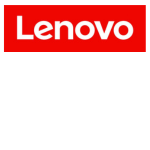Storage Efficiency Research
-
Full Guide to the Growth of NVMe
Sponsored by: Western DigitalRead this expert-guide to discover the benefits nonvolatile memory express (NVMe) provides, and explore how yet another stage of NVMe development, NVMe over Fabrics, is allowing this tech to scale rapidly to meet development needs. Then, learn why the introduction of NVMe over Ethernet may be the only thing capable of saving Ethernet drives.
-
Your Guide to Planning The Future of All-Flash Arrays
Sponsored by: Western DigitalGo inside this expert-guide to learn how to effectively price all-flash offerings. Then, learn how those on the cutting-edge of the flash market are putting their arrays to work reducing I/O latencies. Finally, discover the 2 data reduction strategies that many flash vendors put to work in their systems.
-
Object Storage Architecture: Mitigating Complexity, Capacity, and Archival Concerns
Sponsored by: SanDisk CorporationThis expert resource serves as your full guide to object storage implementation, with cloud workload, sync-and-share, API-accessible storage, and more use cases examined. Download now to gain full access, learning how object storage maintains the unstructured data deluge, and view an object vs. file vs. block storage bake off.
-
George Crump Evaluates the State of Flash Storage Systems
Sponsored by: HPE and Intel®In this expert guide, George Crump outlines the state of flash storage systems, and demonstrates how to use NVMe and flash DIMM to proactively keep performance ahead of users' expectations. Read on as Crump also predicts the fate of HDDs, and explains how to keep pace by improving internal and external connectivity.
-
Seven Tips to Improve Data Storage Efficiency
Sponsored by: HPE and Intel®In order to get the most out of your new flash array, you need to start with a solid foundation of practices and complimentary technology. In this expert guide, learn 7 tips to achieving faster, more efficient storage.
-
All-flash Storage Arrays: Are They Killing Hybrids?
Sponsored by: TechTarget StorageWhere there are instances when either all-flash or hybrid arrays work well—that is where the battle for dominance occurs. In this issue of Storage Handbook, our experts deconstruct the hybrid vs. AFA debate, digging into cost, network connectivity, and which arrays are more pertinent for primary storage workloads.
-
How Storage Is Catching Up with the DevOps Revolution
Sponsored by: Pure StorageIn this essential guide, discover why DevOps requirements are shifting how enterprises consume and deploy storage resources to a more-cloud focused approach. Download now to gain guidance on storage technologies most appropriate for Agile development, including VM-aware secondary storage, hyper-convergence, and more.
-
Storage Showdown: All-flash vs. Hybrid Arrays for Virtual Desktop Environments
Sponsored by: Pure StorageDownload this guide as Tom Fenton, Senior Validation Engineer at the Taneja Group, illustrates several critical factors to consider when deciding to use an all-flash or hybrid array in your virtual desktop environments. Here, you'll evaluate hybrid vs. all-flash on cost, ability access to cold data, compression and deduplication, and more.
-
Flash Storage Caching Boosts Application Performance—but Requires Balance
Sponsored by: Pure StorageUse this guide as a comprehensive resource for evaluating flash caching benefits, trade-offs, 3 main implementation models, and determine where to cache in order to leverage faster media and improve I/O performance.
-
SQL Server SSD Technology Becoming a Solid Storage Choice
Sponsored by: Pure StorageAccess this e-guide to clue into exactly why SSD is emerging as a solid storage choice for SQL Server. Our experts highlight how SSD's embedded controller ensures the integrity of the data stored in the drive, and address your concerns centered on drive reliability and longevity.
-
Which Types of Flash Make the Most Sense for Virtualization?
Sponsored by: Pure StorageWhich types of flash make the most sense for a virtualized environment? In this expert guide, George Crump evaluates the durability of three types of flash—single-level, multi-level, and triple-level cell. Read on to also delve into three flash form factors to consider when implementing it on virtual workloads.
-
Ten Methods of Improving Virtual Server Storage
Sponsored by: Pure StoragePerformance monitoring for virtual storage is very difficult due to the hypervisor lacking the insight into what's happening with that storage. This expert guide illustrates how to improve the performance of your virtual server storage with 10 proven methods.
-
DevOps Strategy for Health Site Fueled by Flash, CDM
Sponsored by: Pure StorageIn this expert guide, discover how women's health website Lifescript implemented a revenue-boosting DevOps strategy with all-flash storage and copy data management. Read on to see how this SSD/CDM duo succeeds, with built-in data deduplication and more.
-
If Performance Is Paramount, Flash Cloud Storage May be Key
Sponsored by: TintriThis e-guide serves as your essential resource for choosing a cloud provider with integrated flash storage to maximize your cloud app performance. Read on to learn why object storage just doesn't deliver the scale and performance cloud apps demand, and instead see how SSD steps in to deliver potentially unlimited scale.
-
3D-Nand Boosts Capacity to Push All-flash Data Center
Sponsored by: AvnetBecause the demand for storage capacity is so insatiable, storage media suppliers have had to look for new ways to increase the capacity of their flash products. Discover how to do so here with 3D-Nand-powered SSD, achieving higher densities at a lower cost per bit.
-
Solid-State Storage Device Buyers Want Performance
Sponsored by: AvnetRead this expert guide to flesh out flash implementation, and discover why I/O performance lags, capacity concerns, and server virtualization are fueling SSD appliance adoption. Additionally, learn the top 3 apps storage admins indicate are in most need of flash.
-
Honing Your Business Case for All-flash Array Implementation
Sponsored by: AvnetDownload this expert guide to delve into the AFA essentials, and learn which apps will best benefit from implementation. Read on to take advantage of AFA deduplication and compression for virtual apps, as well as learn how HDDs compare to SSDs, how to accommodate apps that require more IOPS, and more.
-
Hyper-convergence Extends to New Horizons—and New Uses with All-flash Storage
Sponsored by: LenovoDownload this expert guide to gain a foothold in the hyper-converged market, and discover why all-flash storage is now an integral component in converged infrastructure. Read on to learn how to apply flash-based HCI to high-performance databases, VDI workloads, and more.
-
How to Extract the Most Value from the Software-defined Storage Market
Sponsored by: Veritas and HighVailLearn how to plot out effective software-defined storage implementation by delving into the SDS market. Read on to weigh the pros and cons of SDS integration, and take into consideration SDS's role in the overall context of software-defined enterprise architecture and hyper-converged infrastructure.
-
Learn to Increase Your Data Storage Capacity In Simple, Affordable Ways
Sponsored by: Hewlett-Packard EnterpriseIn this expert guide, George Crump, President of Storage Switzerland discusses several strategies for making storage expansion easy and affordable. Inside, discover a plan for implementing flash storage in hyper-converged architecture, a guide for making a storage capacity plan in-line with your budget, and 7 tips to improve data storage efficiency
-
Take a Deep Dive into the Software-defined Storage Market
Sponsored by: TechTarget StorageDownload this handbook to discover how to extract the most value from the software-defined storage market—and obtain the best ROI from your virtual storage—with this deep dive into SDS technologies, including hypervisor-based SDS, object SDS, and more.
-
Storage Networking Technology Steps Up to Performance Challenges
Sponsored by: Dell EMC and Intel®Storage network technology is changing and speed is the name of the game. To handle the burgeoning data growth, organizations require technology that can circumvent performance bottlenecks. This eguide discusses new storage technologies, such as fibre channel (FC) and NVM express (NVMe), designed to increase connectivity and minimize latency.
-
LOB Managers Utilize All-Flash to Drive Decision-Making and Boost Oracle App Performance
Sponsored by: Pure StorageDiscover how LOB managers are leveraging all-flash storage to drive better decision-making by boosting the performance, reliability, and development of Oracle apps and analytics. Access this expert guide to see the essentials, as well as 5 key reasons why all-flash on Oracle is essential for app owners.
-
Improve Database Performance with Flash Storage
Sponsored by: Pure StorageIn this eGuide, learn how flash storage dramatically improves database performance in 4 key areas: database IOPS, query performance, data reduction and backup.
-
Key Server-Side Flash Storage Considerations
Sponsored by: Dell EMC and Intel®To simplify the solid state storage purchasing process, this eguide provides an overview of a plethora of factors to consider including various form factors, interfaces, capacities as well as advantages and limitations of server-side solid-state storage.










